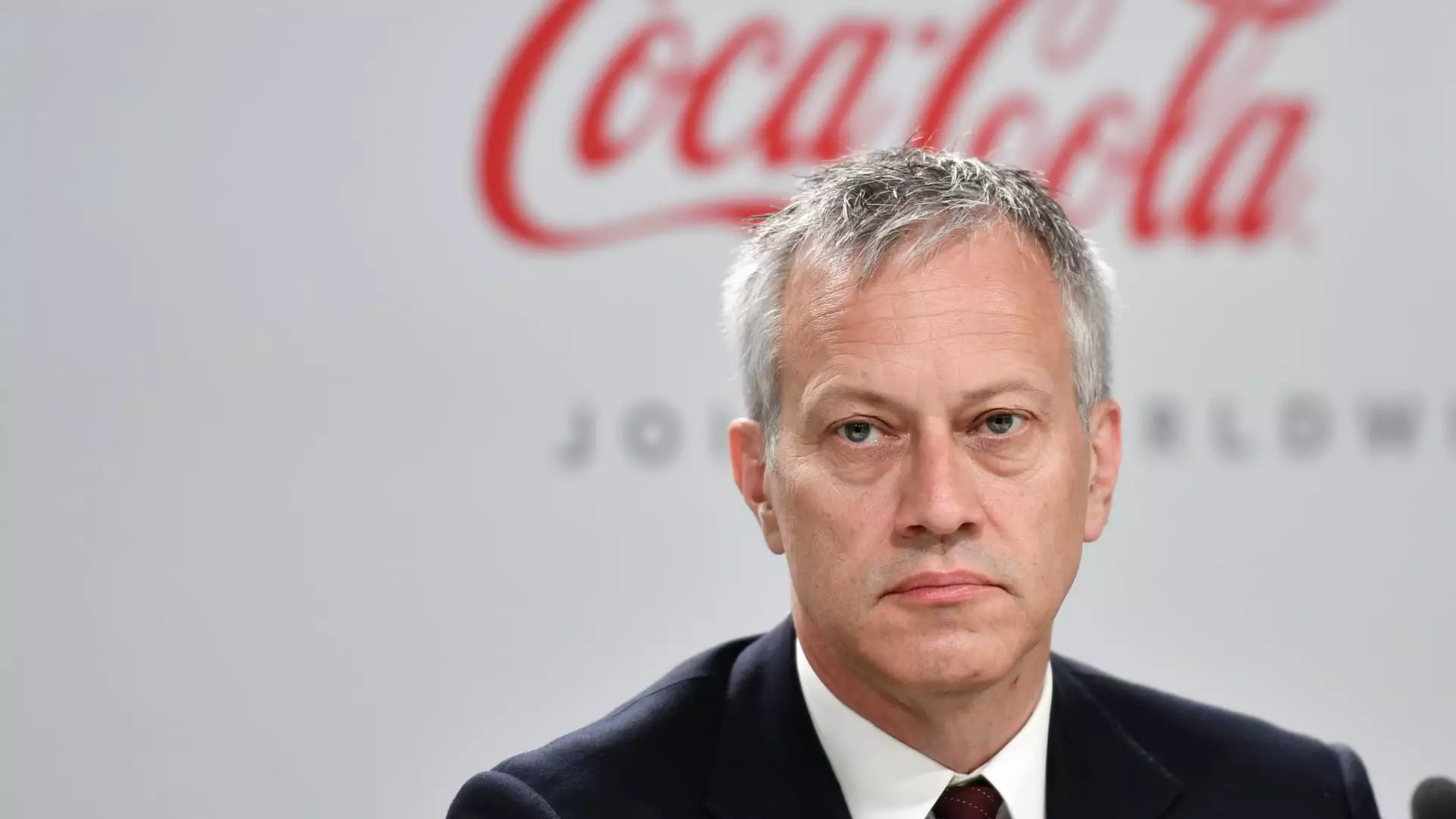The recent E. coli outbreak linked to McDonald’s Quarter Pounder burgers has ignited concerns regarding food safety and its ramifications on associated businesses. Coca-Cola, prominently intertwined with McDonald’s as their primary beverage partner for nearly seventy years, has responded to these worries with a tone of reassurance. CEO James Quincey articulates confidence that the outbreak will not significantly derail Coca-Cola’s sales, a notable statement given the gravity of the health crisis.
Coca-Cola’s bond with McDonald’s exemplifies a mutually beneficial arrangement that extends beyond a mere supplier-client dynamic; it reflects deep-seated interdependencies within the fast-food ecosystem. With McDonald’s being Coca-Cola’s largest customer, the two entities rely on one another for marketing and product development initiatives. This relationship was evident when Coca-Cola recently provided marketing support for McDonald’s $5 value meal. Such collaborations illustrate how intertwined their business strategies are, particularly in an era where customer spending is on the decline.
Quincey’s assertion, “We’re a big partner of McDonald’s, they’re a big partner of ours,” encapsulates this alliance, emphasizing Coca-Cola’s commitment to assist McDonald’s through this health crisis. However, while the message is clear, one must question the resilience of such partnerships when confronted with public health issues that could potentially tarnish brand reputation.
Health Concerns and Corporate Response
The Centers for Disease Control and Prevention (CDC) reported a concerning connection between the E. coli outbreak and specific ingredients used in McDonald’s signature burgers. With 49 confirmed cases across ten states and one recorded fatality, the stakes are high. Consumer health must take precedence amidst corporate interests, which McDonald’s has acknowledged. Removing the Quarter Pounder from the menu and pausing onion distribution reflects an immediate response to ensure public safety and confidence.
This rapid course of action reveals the difficulties corporations face in managing food safety crises in today’s interconnected market. Such swift responses are critical to preserving customer trust, which can be fragile in the face of health emergencies. However, the effectiveness of these measures on consumer behavior remains uncertain as it is compounded by broader economic factors influencing dining choices.
Even as Coca-Cola reassures stakeholders of minimal expected damage to their sales, the broader context paints a more complex picture. The E. coli scare surfaces at a time when fast-food restaurants, including McDonald’s, have been observing a dip in consumer spending. As patrons tighten their belts, companies are scrambling to attract foot traffic through attractive discounts. Nonetheless, this approach is double-edged, cutting into profit margins while attempting to lure back dissatisfied customers.
For Coca-Cola, the relationship with McDonald’s isn’t just about beverage sales; it’s part of a grander marketing strategy that relies heavily on customer footfall at fast-food chains. While Coca-Cola did surpass Wall Street estimates in earnings, predominantly due to strategic pricing adjustments, the stock market reaction demonstrated investor apprehensions, evidenced by a dip in share prices.
As the repercussions of the E. coli outbreak unfold, it will be essential to observe how both Coca-Cola and McDonald’s navigate this crisis. The steadfast nature of their partnership may provide a buffer; however, the long-term implications on brand equity and consumer trust are yet to be determined. The event serves as a poignant reminder that in the food and beverage industry, health and safety concerns can cast a shadow over even the most established corporate relationships.
Coca-Cola’s ability to remain resilient in this instance may strengthen its symbolic representation of perseverance in the face of adversity, but only if they continue to prioritize consumer safety, adapt to the changing market, and maintain transparent communication with their stakeholders. The overarching lesson underscores the delicate balance between corporate success and public health, which must not be overlooked amid the drive for profit in challenging economic climates.


Leave a Reply